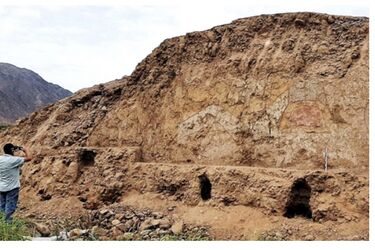A 3200-year-old fresco depicting a spider god was found in Peru

During excavations on the territory of the ruins of a temple in the province of Viru in Peru, archaeologists discovered a 3200-year-old fresco depicting a spider god painted on the wall.
This is reported by The Guardian.
The fresco was created using ochre, yellow, gray and white paint. According to scientists, the spider god was a symbol of rain and fertility.
Read also: Archaeologists discover and recreate the oldest musical instrument in the Middle East (photo)
Given that the temple was built near a river, we can assume that it was dedicated to the gods of water. The spider on the fresco was associated with water and had a special meaning in pre-Hispanic cultures that lived according to a ceremonial calendar. Perhaps between January and March, during the rains, they held a sacred water ceremony.
Archaeologists say that almost 60% of the temple complex, which was built 500 km north of Lima, was destroyed by farmers who used heavy machinery to expand their fields in the region.
As a reminder, archaeologists in China have discovered a huge area of buildings made of compacted earth, cemeteries, and bronze foundries on the Loess Plateau.
If you want to get the latest news about the war and events in Ukraine, subscribe to our Telegram channel!
